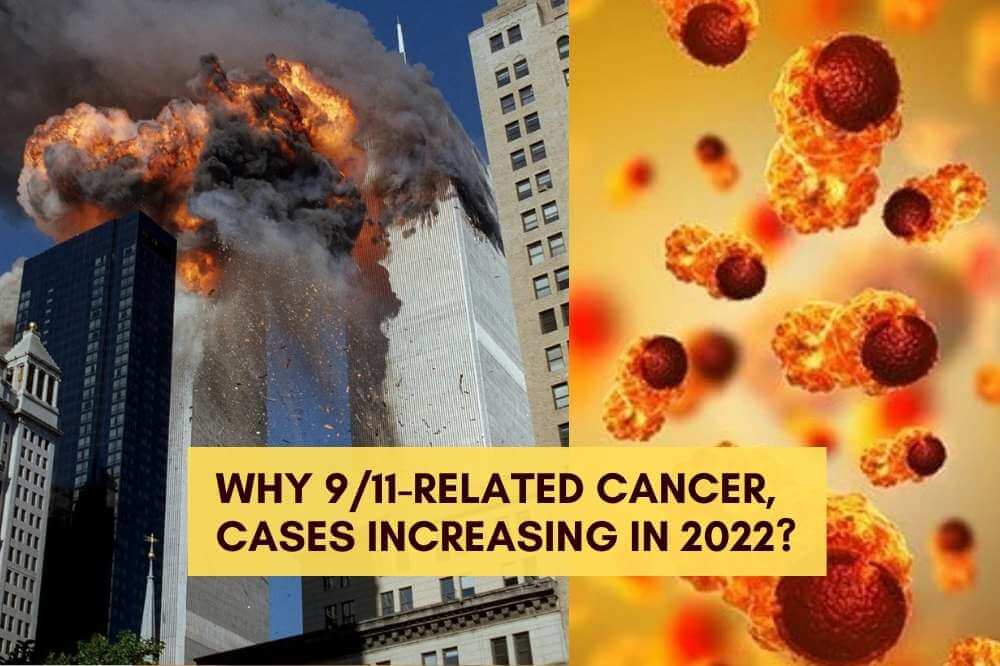The September 11th tragedy has left a lasting impact on the United States, and one that is still impacting health to this day. The World Trade Center attacks caused a dramatic spike in cases of 9/11-related cancer, with an estimated 10,000 people who were exposed to the toxic debris during the attack now living with cancer.
The Term
The term “9/11-related cancer” refers to a type of cancer that is caused by exposure to 9/11 blast. 9/11-related cancer is on the rise, and there are a few possible explanations for this.
One reason for the increase in 9/11-related cancer cases may be that people are being exposed to higher levels of 9/11-related. This could be due to industrial processes or other environmental factors. Another possibility is that people are simply living longer, and thus have a greater chance of developing 9/11-related cancer.
Whatever the cause, it’s important to be aware of the dangers of 9/11-related exposure and to take steps to protect yourself. If you think you may have been exposed to 9/11-related, talk to your doctor and get tested as soon as possible.
Types Of 9/11-Related Cancer
There are several types of 9/11-related cancer, including:
1. Pulmonary fibrosis – This is a condition in which the lungs become scarred and stiff, making it difficult to breathe. Symptoms include shortness of breath, coughing, and fatigue.
2. Gastroesophageal reflux disease (GERD) – This is a condition in which stomach acid flows back up into the esophagus, causing heartburn and other symptoms. GERD is often caused by weight gain or pregnancy.
3. Asthma – This is a chronic lung condition that causes wheezing, chest tightness, and shortness of breath. Asthma is often triggered by environmental factors, such as dust or pollution.
4. Chronic obstructive pulmonary disease (COPD) – This is a group of lung diseases that make it difficult to breathe. COPD includes conditions such as emphysema and chronic bronchitis. Symptoms include coughing, wheezing, and shortness of breath.
5. Lung cancer – This is the most common type of 9/11-related cancer. Symptoms include coughing, chest pain, and shortness of breath. Lung cancer often
Symptoms Of 9/11-Related Cancer
There are a few different symptoms associated with 9/11-related cancer, and they can vary depending on the individual. Some common symptoms include fatigue, weight loss, and fever. Other symptoms that have been reported include night sweats, bone pain, and easy bruising or bleeding. If you experience any of these symptoms, it’s important to see a doctor as soon as possible.
9/11-related cancer is thought to be caused by exposure to the 9/11 virus. This virus is most commonly spread through contact with infected blood or bodily fluids. It’s important to take precautions to avoid coming into contact with these fluids if you’re at risk of infection.
Cases of 9/11-related cancer have been on the rise in recent years. This is thought to be due to increased travel and globalization, which has made it easier for the virus to spread around the world. In addition, more people are now living longer with HIV/AIDS, which increases their risk of developing cancer.
Causes Of 9/11-Related Cancer
There are a number of possible causes for cancer. One cause is exposure to cancer-causing agents, such as chemicals or radiation. Another cause is genetic factors. People with certain inherited genetic mutations may be more likely to develop cancer.
Certain lifestyle choices can also increase the risk of developing cancer. These include smoking, drinking alcohol, and being overweight. A diet that is high in processed foods and low in fruits and vegetables may also contribute to the development of cancer.
Viruses or other infections may also contribute to the development of various malignancies. As an illustration, the human papillomavirus (HPV) has been associated with a higher risk of cervical cancer.
New cases of 9/11-related cancers are up from around 100 cases in 2007 to more than 28,000 in 2022
9/11-related cancer is a type of cancer that can develop in people who were exposed to the toxins released when the World Trade Center towers collapsed on September 11, 2001.
In the years since the 9/11 attacks, there have been increasing numbers of cases of 9/11-related cancer. As of 2022, there have been more than 28,000 cases diagnosed.
The most common type of 9/11-related cancer is respiratory tract cancer, which includes cancers of the lung, bronchus, and trachea. Other types of 9/11-related cancer include blood cancers (leukemia and lymphoma), skin cancer, and gastrointestinal cancers (stomach, pancreas, and colon).
Exposure to the toxins released on 9/11 can increase your risk for developing cancer. If you were in the vicinity of the World Trade Center on September 11, 2001, or if you worked or lived near the site in the months or years after the attacks, you may be at increased risk.
Conclusion
If you are concerned about your risk for 9/11-related cancer, talk to your doctor. There is no one definitive test for 9/11-related cancer, but your doctor can order tests to check for the presence of toxins in your body and refer you to specialists who can monitor your health.

